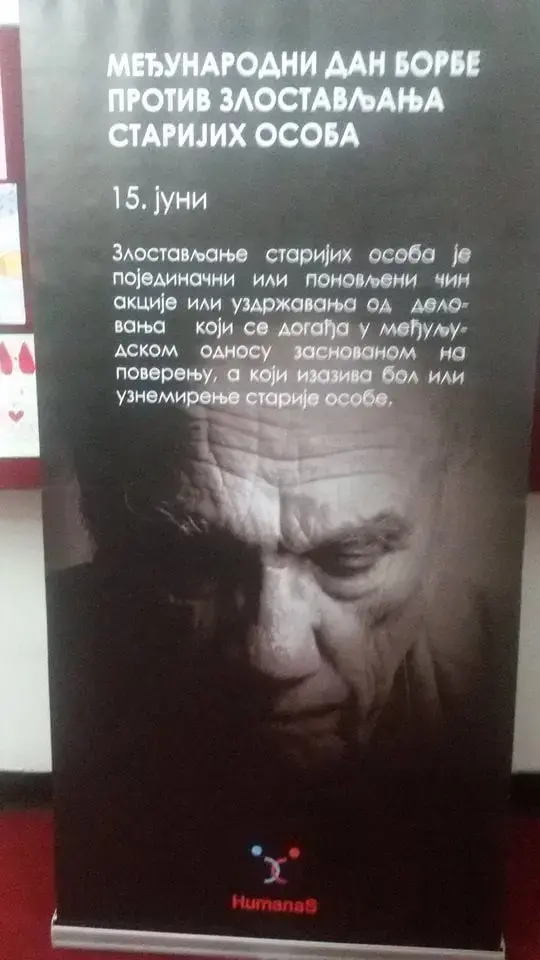The state of emergency and the epidemic have been going on for six weeks already. In the age of corona different people have different reactions – some are scared, some are angry, some are completely apathetic and others act as if there is nothing going on. That’s the way things are, we are not all the same, we do not all have identical reaction mechanisms. Older women and men are no exception even though they are completely isolated, shut down, banned from leaving their houses under threat of large financial penalty. If you dare break the curfew you will be penalised, step out of your house and the lowest penalty there is two times the average pension – no need to even look at the highest possible penalty there.
However, even though we live in strange times, I am trying to adapt to the circumstances and above all to preserve my sense of solidarity and responsibility for people who live in even more difficult circumstances. This sense has lived in me for 73 years already. I have worked my hardest to help other people all my life, so corona won’t stop me now. This is why I pick up my telephone and call the Red Cross, I have to explain to them why my payment is late this year. It’s not because I forgot about it and it’s not that I don’t want to pay in these troubled times, it’s simply out of my hands at this point. I am prevented from making my payment – I can’t leave the house and I don’t know how to do this online. But I will do it, they just have to be a little patient – as soon as the state of emergency is lifted I will send them money.
I dial the number and a kind volunteer picks up. “I’m sorry I’m late on my payment”, I say and she is slightly confused – probably didn’t expect such an opening line. She expects people with problems to call so, in her kindly voice she inquires “Your bank is late on paying your pension? No worries, just tell me which bank that is and we will ask them why they’re late and when the payment will happen.” “No, no, wait, no one is late paying ME, it is I who is late and please, just be a little patient, I will pay when all of this is finished.“ “Ah, now I understand, you haven’t paid some of your bills. That’s quite alright, don’t worry, the government assured everyone that during the state of emergency, no one will have their services cut due to unpaid bills, there won’t even be any interest on late payment.” “No, I’m sorry, I am late on paying my charity donation. And, please, I’m asking you to forgive me , I am a regular donor to the programme that helps children recover on the seaside and now I can’t leave my home so I cannot pay. Please, if you could be so kind and record this somewhere, so that you know I have not forgotten, so that you know I will be paying.
I mean, you don’t forget things like this, this is my tiny seed of solidarity that I plant every year for some child and then when I make the payment and go to bed I feel good as I know I’ve done something good. I’ve done something as big as giving a child a smile on their face when they see the sea. So, once again, please, understand I am sorry for being late with my payment.”
This story was told to Natasa Todorovic, psychologist and a call worker at the Red Cross of Serbia working on the help lines supported by UNFPA in Serbia.
Since April, help lines provide older people across the country with psychosocial support, medical, legal advice and other types of assistance, and they managed over 350 calls. Involvement of the Commissioner for the Protection of Equality and swift reaction of call workers made it possible to map and address system gaps to improve institutional response. For example:
- Commissioner for the Protection of Equality initiated an appeal to the MoI to loosen penalties for older people and to pay special attention to people suffering from dementia
- Informal caregivers were provided with papers allowing them to move during curfew
- Army pensioners were provided with extended prescriptions for medication, extending their duration to six months, making them equal to civilian pensioners...
Now that COVID19 lockdowns have been lifted, older people are still calling in, but with increase in requests for psychosocial support. And lines are still open- three times a week.





